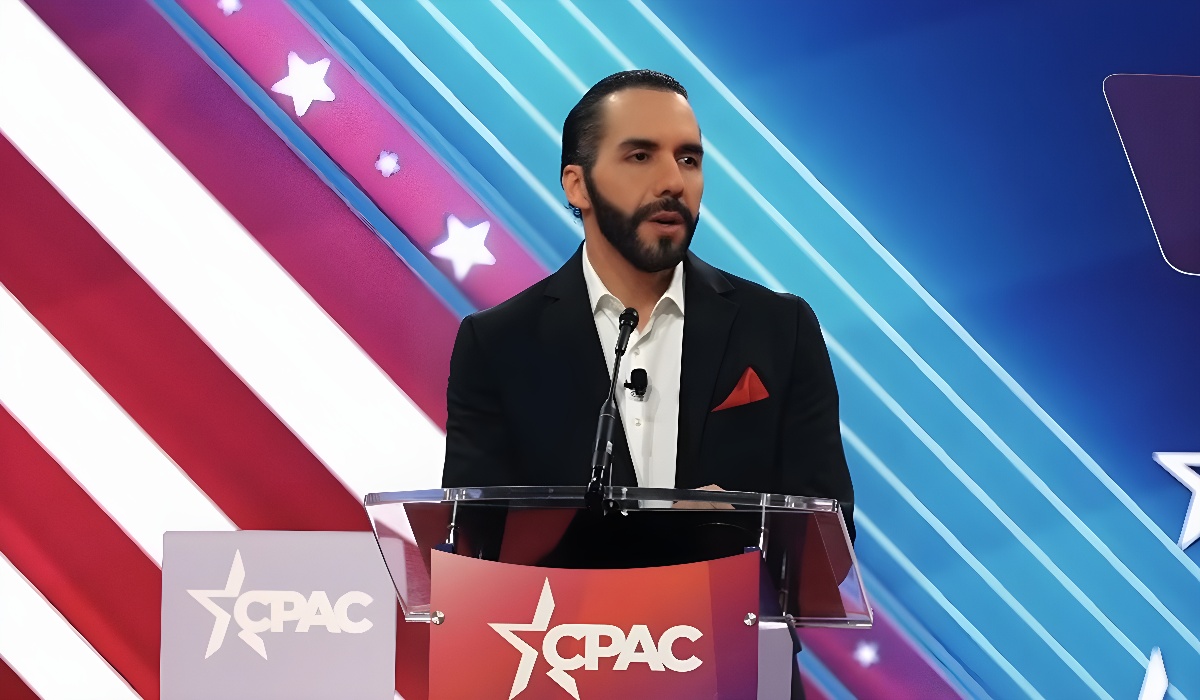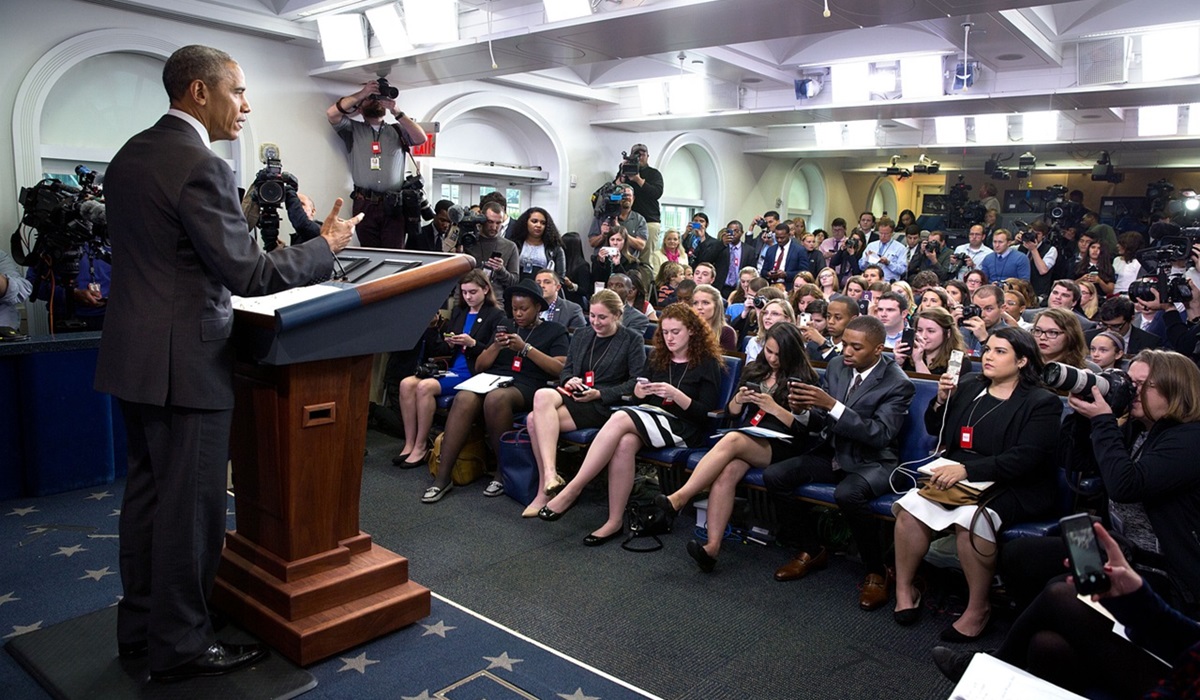The Illusion of High Taxes: How Bukele Exposed the Real Funding Mechanism of the U.S. Government
- Kingston Bailey
- U.S.A
- June 14, 2024

Nayib Bukele, the President of El Salvador, has never shied away from controversy. His presidency has been marked by bold initiatives, from making Bitcoin legal tender to implementing sweeping security reforms. Yet, his recent speech at the Conservative Political Action Conference (CPAC) in the United States may be his most provocative move yet. Addressing a packed audience, Bukele spoke candidly about the U.S. government’s financial practices, touching on subjects that are often glossed over in political discourse. His remarks about the funding mechanisms of the U.S. government, the role of taxes, and the potential fallout from these practices struck a chord with many and sparked significant debate.
Bukele began his speech by addressing a common misconception: the idea that high taxes in the United States are what fund the government. “Always tell me that the problem is high taxes. But they’re wrong,” Bukele stated. He acknowledged that taxes in the U.S. are indeed high, higher than in many other parts of the world, but he argued that this is not the crux of the problem. The real issue, he asserted, is that these taxes are not actually what funds the government. This assertion is both simple and shocking, and it calls into question a fundamental aspect of the American financial system.
“The government is not funded by your taxes,” Bukele declared. “It is funded by treasury bonds. Paper.” He elaborated on how the U.S. Treasury issues bonds, which are essentially IOUs that the government promises to pay back with interest. These bonds are primarily purchased by the Federal Reserve (the Fed), which buys them by creating money. This process is often referred to as “money printing,” although in the digital age, it is more about creating electronic entries. “But what backing does the Fed have for that money?” Bukele asked rhetorically. “Themselves.” This starkly highlights the self-referential nature of the U.S. financial system. Essentially, the government finances itself by creating debt that is bought by an institution that can create money at will. This circular system keeps the wheels of the economy turning, but it rests on a precarious foundation.
Given that the government can, in theory, print unlimited amounts of money, Bukele posed a critical question: “Why do they collect taxes?” The answer, he suggested, is to uphold the illusion that taxes are funding the government. This illusion is crucial for maintaining confidence in the system. If people realized that their taxes are not actually funding the government, the trust in the entire financial system could be undermined.
Bukele warned of the dangers inherent in this system. “A bubble that will inevitably burst,” he predicted. The U.S. dollar’s value is sustained largely by confidence. If the general public or international community loses faith in the dollar due to the realization that it is backed only by the promise of future repayment from an increasingly indebted government, the consequences could be catastrophic. This loss of confidence would not only lead to a plummet in the dollar’s value but could also precipitate a broader economic collapse. “If most Americans and the rest of the world were to become aware of this farce, confidence in your currency will be lost,” Bukele cautioned. “The dollar will fall, and Western civilization with it.”
The speech also touched on global shifts that could exacerbate the fragility of the U.S. financial system. The rise of the BRICS nations (Brazil, Russia, India, China, and South Africa) and their moves towards settling trade in local currencies and developing digital currencies signify a move away from the dollar-centric global economy. This process, known as de-dollarization, is gradually eroding the dollar’s dominance. As these countries reduce their reliance on the dollar, the demand for U.S. currency decreases. This, in turn, can lead to a depreciation of the dollar’s value. “We are starting to see the cusp of it with the BRICS nations settling trade in their local currencies and on the verge of a digital currency at the end of the year,” Bukele noted. This shift could accelerate the decline of the dollar’s global influence, making the bubble more likely to burst.
When the bubble bursts, as Bukele predicts it will, the consequences could be severe. The U.S. economy, heavily reliant on the confidence in its currency, could face a severe downturn. This could lead to a cascading effect on the global economy, given the interconnected nature of modern financial systems. The result could be a new economic order, with multiple currencies and regions vying for dominance in a truly multipolar world. Bukele’s vision of this future is not without its risks. The transition from a dollar-dominated world to a multipolar one could be chaotic and destabilizing. Countries that are heavily invested in U.S. debt could suffer significant losses, and global trade could be disrupted. However, it could also lead to a more balanced and resilient global economy, less susceptible to the whims of a single nation’s financial policies.
In his speech, Bukele also addressed the question of who benefits from the current system of money printing and high taxes. “Who’s getting rich?” he asked. The beneficiaries, he suggested, are not the average citizens but those who are closest to the financial centers of power. Large financial institutions, wealthy investors, and those with significant holdings in assets like real estate and stocks benefit from the inflationary policies that erode the value of money but increase the value of tangible assets. This system exacerbates inequality, as those who own assets see their wealth grow, while those who rely on wages and savings see their purchasing power diminish. The high taxes paid by ordinary citizens contribute to this illusion of fiscal responsibility, while the true beneficiaries remain insulated from the consequences.
President Bukele’s speech at CPAC was a stark reminder of the complexities and contradictions within the U.S. financial system. By unmasking the elephant in the room – the reality that the U.S. government is funded not by taxes but by a system of debt and money creation – Bukele has sparked a necessary conversation about the sustainability and fairness of this system. His call for greater transparency and a reevaluation of how governments are funded is timely. As the world moves towards a more multipolar economic order, it is crucial to address these issues head-on. The potential collapse of the dollar-centric system presents both risks and opportunities. By confronting these challenges now, there is a chance to build a more equitable and stable global economy.
Bukele’s message is clear: the current system is unsustainable, and change is inevitable. The question is not whether the U.S. financial bubble will burst, but when. And when it does, the world must be ready to adapt to a new reality. His speech is a call to action for policymakers, economists, and citizens to rethink the foundations of our economic systems and prepare for the future.








